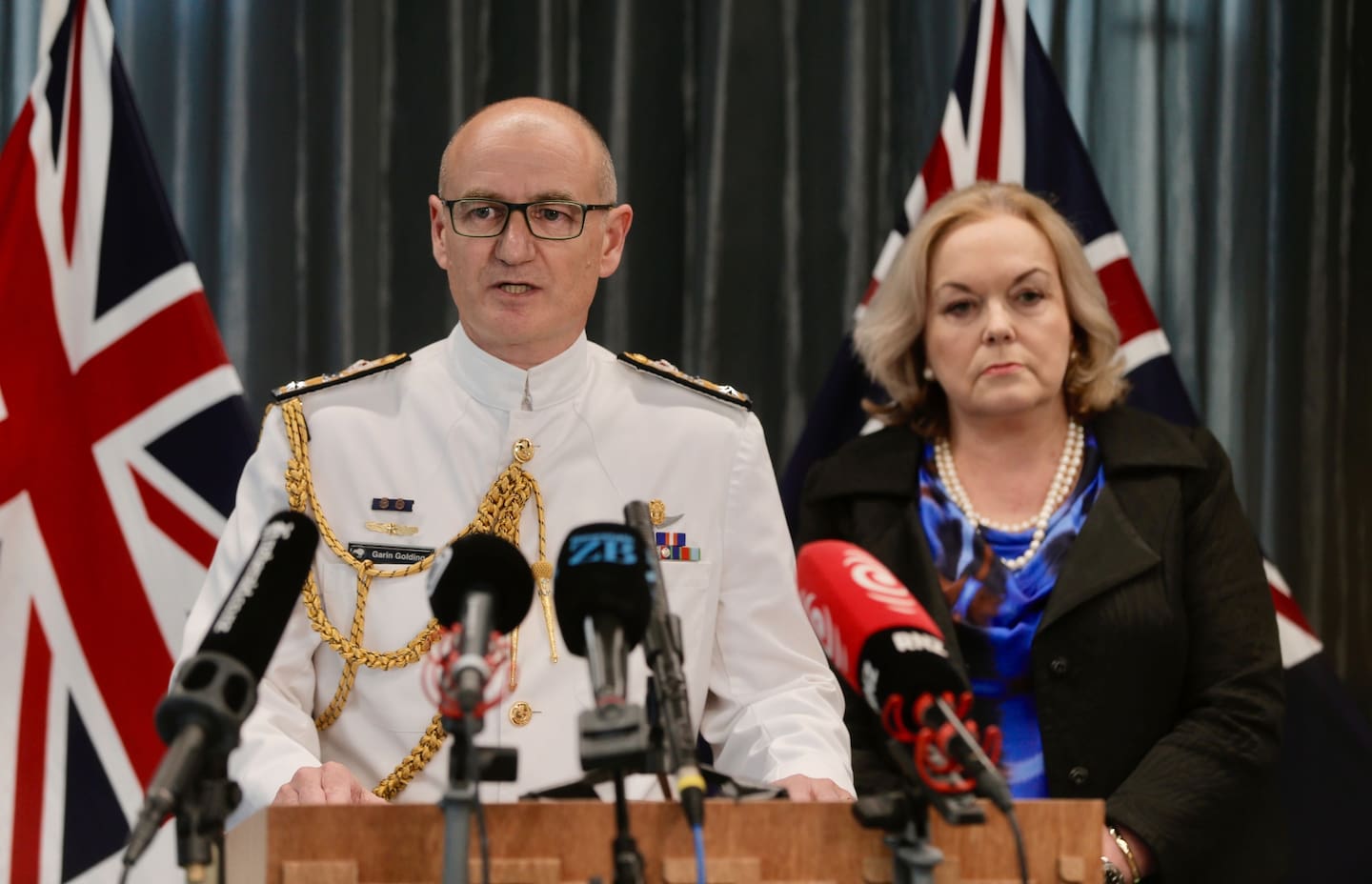The initial findings into the sinking of HMNZS Manawanui in Samoa last month are being revealed.
Defence Minister Judith Collins KC and Chief of Navy Rear Admiral Garin Golding are addressing media at 3pm, with the interim Court of Inquiry’s report released at the same time.
The HMNZS Manawanui, a specialist survey and dive support vessel, struck a reef on the evening of Saturday, October 5.
It began to list and Commander Yvonne Gray gave the order to abandon ship.
A fire broke out in the engine room and the $100 million vessel sank that Sunday morning, off the south coast of the Samoan island of Upolu.

HMSNZ Manawanui foundered off the coast of Upolu Samoa, 05 October 2024. Picture supplied
Report blames ‘human error’ for sinking
Human error was the root cause of the vessel’s sinking, the report shows.
Chief of Navy Rear Admiral Garin Golding said the direct cause of the grounding was because of a series of human errors, resulting in the ship’s autopilot “not being disengaged when it should have been”.

- 200,000 litres of diesel has leaked from Manawanui
- Fire on HMNZS Manawanui broke out in engine room - Samoan officials
- 'Deeply misogynistic' - Minister slates sexist criticisms of Navy commander after sinking
- 'Very worst imagining became a reality': Commander of HMNZS Manawanui reflects on disaster
Defence Minister Judith Collins and Chief of Navy Rear Admiral Garin Golding are addressing media about the findings from the enquiry into the HMNZS Manawanui sinking in Samoa in October. November 29, 2024. Photo / Alex Burton
He said the crew did not realise Manawanui remained in autopilot and, mistakenly believed its failure to respond to direction changes was the result of a thruster control failure.
“Having mistakenly assessed a thruster control failure, standard procedures should have prompted the ship’s crew to check that the ship was under manual control rather than in autopilot. This check did not occur. Remaining in autopilot resulted in the ship maintaining a course toward land, until grounding and eventually stranding.”
Rear Admiral Golding said the incident had “obviously” had an impact on New Zealand’s reputation, and the Navy needed to “own” their mistake.
Why it happened and what would come next in terms of lessons learned were still being worked on as part of the wider Court of Inquiry, which was expected to be completed in the first quarter of next year.
He said the investigation panel was looking at three people for responsibility of the incident: the pilot, the officer overseeing the pilot, and the officer overseeing the ship.
As human error was identified as the cause, a separate disciplinary process would need to be commenced once the Court of Inquiry had concluded, he said.
‘Terribly disappointed’ - Collins
Minister Collins said “we were all terribly disappointed in what happened”.
She said the Navy had since acted in a professional manner, and New Zealanders could have full confidence that the Navy and Defence Force were not shying away from the incident and had stepped up to the mark in taking the incident seriously.
She said we have been very fortunate to date to not have any major oil slips, and teams had been keeping the Samoan government informed.
“I think there’s a lot of trust, as there should be, between the New Zealand government and Samoa... They can have full confidence that we’re doing everything we can.”
She said she had seen a video of diesel, not oil, leaking from the ship, and it was a “big thing” from her point of view to get the diesel out as quickly as possible.
Rear Admiral Golding said salvage operations would commence December 16, if all went to plan.
He said risk assessment procedures were being “actively looked at” following the disaster.
Collins said the main thing was now getting on and sorting out the lessons from the incident, and not allowing it to happen again.
“This has really knocked the Navy for six... But I don’t think anyone can fault the Navy for standing up and saying this is what happened.”
Take your Radio, Podcasts and Music with you









